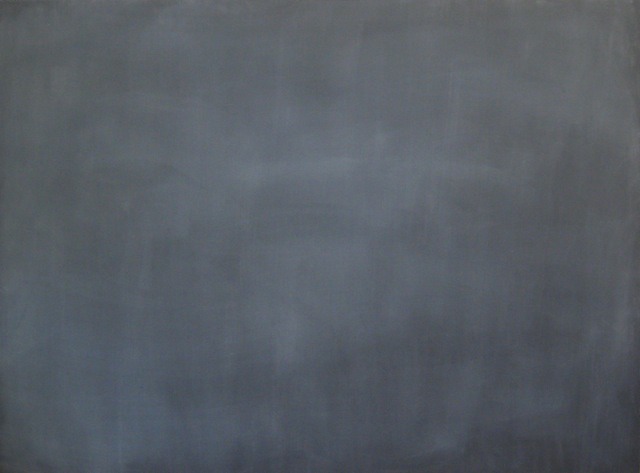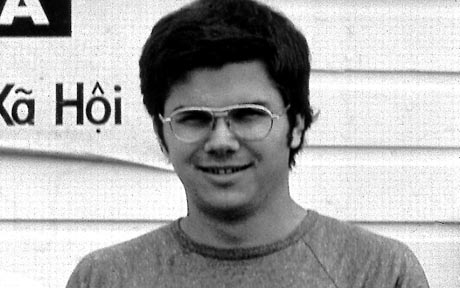Peter Handke on American Writers

Generously translated and sent by Paul Buchholz.
ZEIT: Do you like American writers?HANDKE: Not the recent ones. I’m always thinking again: how wonderful literature would be without all these period-, family- and society-novels. [Theodor] Fontane could maybe still do that, but today it’s a form of sagging culture. I translated Walker Percy, The Last Gentlemen and The Moviegoer, that is a great author. And I love Thomas Wolfe, his novel Look Homeward, Angel. These books have something lyrical, that is absolutely a part of them. With Jonathan Franzen for instance it doesn’t appear at all. He follows a knitting pattern, a scheme. Philip Roth is in the end only a master of ceremonies. But reading is an adventure. In a book, also in a society novel, its seeking movement has to be there in the language. There is no epic literature without a lyrical element. But that has completely disappeared from American literature. There have to be outbreaks, a controlled letting-oneself-go, not this recipe-like writing. Something has to emit from the author, whether that comes from his being lost or from his pain. When, with an author, one only sees the making–to avoid the word Mache [style]–that’s not enough.
Kimora Lee on Writing

“I am anorexic.”
“After I had my babies I was thick.”
“I’m the boss. I don’t need the money. I’m filthy fucking rich!”
“My life is very—big!”
“Tell Deebo to bring me my supplements!”
“She felt my titty!”
“It’s a state of being.”
“I will beat a bitch’s ass!”
“Let me take off my glasses…I want you to see my eyes. I will beat a bitch’s ass!”
“I’m a girl’s girl. I’m a woman’s woman. I’m a cool girl. I’m not a bitch. There’s a difference. And the girls that try to take him are bitches. And I know every one of them in my mind.”
“I wear fur and if somebody throws shit on me I’m gonna whup your ass! I wish somebody would throw shit on me.”
“I seen your titty, but I haven’t seen you.”
“Literally. Literally…I will drag a bitch—drag her through this dirt, literally.”
“We are going to kick his ass and eat his leg.”
Today in Class: School’s Out Edition

School’s out, and now it’s grading time. The students in my Deeper Poetics class turned in final portfolios last week, which include 5-7 page prefaces outlining their poetics in terms of what we studied (poetry and prose about poetry) throughout the semester. In true procrastinator form, I’ve only read five of the portfolios, but what I’m struck by is how each student took something distinct, and distinctly her/his own, from the class.
Against the backdrop of essays by James Tate and Heather McHugh, one student, Kejt, writes about her Quaker roots, and how during Sunday service, “I sit in the pews with everyone else in stillness, and we wait.” She goes on:
In poetry, the silence is just as important as the words chosen. To wrestle with and engage poetry fully we have to come to grips with our terror of silence, of emptiness, of lack. There are a lot of reasons for this societal fear of not speaking, and my Quaker beliefs compel me sometimes to spend time considering why we’ve built a culture without much room or gratitude for silence. Poetry has to contend with wordlessness, though, has to touch it, caress it, and circumnavigate it.
Wow. Beautiful, huh?
And on revision, Andrew writes:
Much of my stylistic growth, I feel, is attained through increasing the volume of my output, that is to say, by writing more poems. I’ve adapted the revision process to suit my needs according to that acquired knowledge. Thus, revision has become to me not the process of modifying an existing draft of a poem to more clearly articulate its project, but reemploying the elements of a single image or idea in order to produce as many variations of one concept as a I possibly can. The result is a method of revision that reproduces a poem so many different ways they hardly resemble a single source.
Prompt Poem: introductory statements by people in my MFA workshop

In my workshop this semester we were encouraged to write a poem a day and post the results on this shared website/forum/message-board thing called “Blackboard.” This was 100% optional and of course no one actually posted a poem everyday or even seriously tried to, I think. We were given numerous prompts and exercises throughout the semester to keep us going if we got stuck. What follows is a poem I made out of everyone’s explanatory/introductory/preface statements to their poems.
Prompt Poem
Hello! Here’s an opposite poem.
Here is a poem that is opposite of Laura Riding.
I started a poem inspired by Campbell McGrath.
See Ezra Pound’s “Alba.”
From today’s notebook entry.
After “Heart” by Gregory Orr.
Continuing what I started yesterday… READ MORE >
Francois VI, Duc de La Rochefoucauld, on Writing
“If I were interested in literary glory I think that with a little trouble I could make quite a name, for I can write good prose and make up decent verse. / I am fond of all kinds of reading, but especially that in which there is something to train the mind and toughen the soul; and above all I find very great enjoyment in sharing my reading with an intelligent person, for in so doing one can continually reflect upon what is being read, and such reflections form the basis of the most delightful and profitable conversation… / I do not think this knowledge of mine will ever pass from my head to my heart.” — from his self-portrait
Voltaire said Rochefoucauld’s Maxims had a huge hand in the formation of taste in French culture, “giving it a feeling for aptness and precision,” says Leonard Tancock, the translator. I found this book randomly at the library, and realized David Shields included it in a reading list posted on The Millions. These ones I thought had something maybe to do with writing or whatever:
Mark David Chapman on Writing

“I just shot John Lennon.”
Post-Structuralism Explained
“Post-Structuralism is pretty easy, right?”
Right?
David Tudor on Writing

My first purpose in going to Europe was to play American music.
I started with this idea that sound could be obtained from sculptural material or actually from anything through reflections.
If you put yourself in a situation of unpredictability and then find that it’s completely possible to accept it, then you become an observer.
When you look at a score and you see that you are following the instructions and the way they are laid down, you are the composers’ helper.
Performing is very much like cooking: putting it all together, raising the temperature.
I try to find out what’s there and not to make it do what I want but to, you know, release what’s there.
An electronic component can seem to have a personality very much in the same way I try to make loudspeakers have a special voice.
In a sense there was only one principle of sound generation, so I decided to influence the sound output to make as many different kinds of sounds as I could. If I had 12 loudspeakers, I could produce 12 different sounds from the same input material.
Loudspeakers should be made to be destroyed and… disposable.
If you don’t like the sound that the computer produces, then it’s a matter of making it do something that’s interesting to you. And I’ve done it, upon occasion.
I’ve always felt that there’s a point where a piece seems to be alive, that is, living. And that’s the point where I know the composition is finished.
When the sound appears to be live in the space, then it’s free; it seems to flow by itself and not to be caused by some specific intention, especially of an intellectual nature.
As long as there are people who realize that machines are not interesting and that behind any music there has to be a live person, I think that we might be able to overcome the omnipresence of synthesizers and keyboards.
A Student Cried in My Poetry Workshop

Every Wednesday at 11 a.m. I have a two hour and forty-five minute poetry workshop with thirteen other students. We spend the first hour of every class discussing a book assigned to us weekly by the professor. Then we workshop seven poems, each student turning in a piece to be discussed every other class. Pretty simple.
This week something happened. We were workshopping a student’s poem. It was about something (I’ll just omit everything explicit about everyone and anything in this class) and followed a similar pattern to some other poems this particular student had turned in for critiquing. People started talking about the poem in the customary manner, which is pretty much everyone suggesting different cuts, extensions, and changes that need to be made.
Then something happened. I’ll preface this by saying that, without great exception, pretty much every student turns in the same poem every week. Subject matter and stuff alter a little bit, but approach and word choice and style all seem pretty constant.


